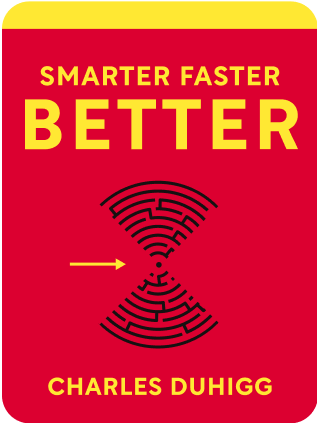

This article is an excerpt from the Shortform book guide to "Smarter Faster Better" by Charles Duhigg. Shortform has the world's best summaries and analyses of books you should be reading.
Like this article? Sign up for a free trial here .
Do you struggle to stay on task? Do you know what reactive thinking is and how it affects your ability to focus?
To be productive, you must minimize distractions. When you’re learning how to stay on task, it helps to consider the factors that can prevent you from doing so. The brain’s ability to focus effectively can be hampered by reactive thinking.
Read more to understand how reactive thinking can harm your ability to stay on task.
What Is Reactive Thinking?
Reactive thinking is a cognitive process in which the brain triggers an instinctive, automatic reaction to a stimulus or event. It can cause your focus to be diverted from its most productive path and make it difficult to stay on task.
Reactive thinking is at the core of creating habits. It allows your brain to respond to certain situations without really having to pause or think about what’s happening. Instead, the brain instinctively reacts using a familiar mental process. For instance, if you’re driving and begin to approach a red light, your brain may instinctively tell you to start braking.
How Does Reactive Thinking Harm Your Ability to Stay on Task?
In and of itself, reactive thinking isn’t a bad thing. It can help you to deal with situations quickly and effectively, without having to pause to consider your course of action. However, reactive thinking becomes problematic when your instinctive reaction is the incorrect response to the situation.
For instance, your brain may trigger reactive thinking in a scenario that requires conscious thought and judgment in order to find the best way forward. Some situations can’t be successfully resolved solely using instinct; but, your brain may try to do so anyway. This instinctive response may prove to be unhelpful or damaging.
For example, imagine you’re driving down a country road when you notice an obstacle in your path a little way ahead. The thoughtful and appropriate response to the situation would be to brake smoothly and steadily as you approach the object, or to carefully swerve around the object if it’s possible and safe to do so. However, your brain’s instinctive reaction to seeing an obstacle may be to panic and sharply brake. In some situations, this can be dangerous—for example, if a car is close behind you, the driver may not have time to brake and may crash into you. Braking too hard can also damage your car’s brake pads and tires. To solve this situation in the best possible way, you can’t let instinct take over: you need to think carefully about your response.
Likewise, even in situations where reactive thinking may, in theory, be useful, your brain may inadvertently trigger the wrong automatic response for the situation. Because you can’t consciously control reactive thinking, you can’t ensure that the brain chooses the correct reaction.
This unhelpful form of reactive thinking can negatively impact your productivity; it makes it difficult to stay on task. For instance, if your brain selects an instinctive reaction that doesn’t further your goals, or a reaction that causes issues that require time and effort to fix, this may hinder your ability to stay on task and be productive.
What Causes Unhelpful Reactive Thinking?
Unhelpful reactive thinking occurs in a similar way to cognitive tunneling. It can be triggered when an unexpected event takes you by surprise and requires your brain to jump from “relaxed mode” to “focused mode” very quickly. The brain wants to deal with this surprising new situation swiftly, and so relies on a process that cuts down your response time: reactive thinking.
However, the brain doesn’t pause to consider whether the reaction it’s triggering is appropriate or not; it’s too startled to do so. It merely jumps to a reaction that you know well—a reaction that is familiar, rather than the one that is most effective. Thus, you’re left at risk of responding to the situation in an inappropriate way. You’re distracted from the most productive solution to the situation and prevented from focusing on the right thing.
You can’t consciously control reactive thinking. However, understanding how it impacts your ability to stay on task can help you learn to focus.

———End of Preview———
Like what you just read? Read the rest of the world's best book summary and analysis of Charles Duhigg's "Smarter Faster Better" at Shortform .
Here's what you'll find in our full Smarter Faster Better summary :
- Why becoming more productive isn’t about working longer hours or constantly pushing yourself to do more
- The 8 principles for improving productivity
- How to create a work culture in which each employee is truly valued






